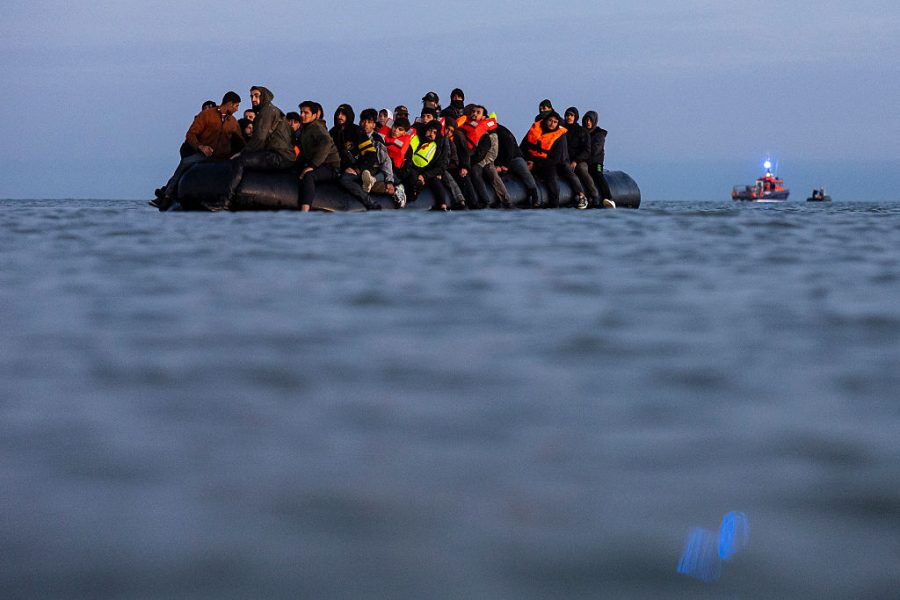The government has deployed two aircraft to the Channel to detect and monitor small boats crossing under the cover of darkness. The planes, De Havilland Dash 8s, are equipped with hi-tech cameras and sensors and will give Border Force ‘eyes’ on the boats heading from France to England. The optimists within government hope that the aircraft’s ‘night vision capability’ will enable Border Force to identify and arrest the smugglers ferrying migrants across the Channel.
After a period of inclement weather grounded the small boats, more stable conditions at the end of last week led to a surge in crossings: 621 migrants reached England on Thursday, 648 on Friday and 503 on Saturday. The total number of migrants who have made the passage this year is 38,728 – 6,000 more than in the same period in 2024.
The deployment of the aircraft will do nothing to stop the small boats. It may actually encourage the people smugglers. With ‘eyes’ from the air, there is less chance of a tragedy at sea should one of the boats run into trouble.
Air patrols may actually encourage the people smugglers
The biggest tragedy in the Channel in recent years was the drowning of 27 migrants in November 2021 off the French coast. Britain held an enquiry into the disaster earlier this year, which heard how the migrants had set out to sea in a boat that was ‘wholly unsuitable’. It was one of 209 boats that left France that month.
In France, 18 people will stand trial over the incident. Eleven of those charged are suspected smugglers, accused of manslaughter, and seven are maritime personnel who face charges of failing to assist persons in danger: two were sailors on a patrol boat, and five were staff from the Calais Maritime Rescue Coordination Centre.
The seven maritime personnel lodged an appeal to be tried by a military court but last week this was rejected. Their case will be heard by the National Court for the Fight against Organised Crime.
Fear of prosecution is the reason why the proposal for the French police and navy to puncture migrants’ boats in shallow water has been abandoned. The idea was mooted earlier this year by the former Minister of the Interior, Bruno Retailleau, and generated much excitement in the British government. Commenting on footage of French police slashing a boat with knives, Transport Secretary Heidi Alexander said ‘that’s action that we are supporting’.
But that was the one and only time that the knives were out. The French coastguard regarded the tactic as ‘dangerous’ and, according to the press, ‘refused to comply’. Who can blame them? Why risk ending up in the dock?
In 2024 the police in Calais were criticised for their ‘aggressive techniques’ in attempting to prevent migrant boats from leaving France. The report was published in Le Monde and the Observer, and was supported by a pro-migrant organisation called Lighthouse Reports. They count George Soros’s Open Society Foundation among their backers.
Bruno Retailleau is no longer the Minister of the Interior and his successor, Laurent Nunez, a close ally of Emmanuel Macron’s, doesn’t appear to regard the situation in the Channel as a priority. Stopping illegal immigration into France is, however, of the utmost urgency for Nunez. To that end, his first overseas trip in his new post was to Madrid last month, where he discussed with his Spanish counterpart how best to work together to crack the problem.
‘Spain is a country of entry for illegal immigration, so it was important to take stock and note with satisfaction that entries have fallen by 40 per cent on their territory since the beginning of the year,’ said Nunez.
Reasons then for the Spanish and the French to be cheerful. As for Britain, the boats keep coming.








Comments